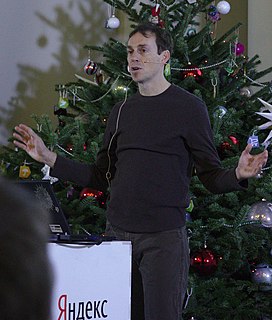A Quote by Linus Torvalds
If Microsoft ever does applications for Linux it means I've won.
Related Quotes
If you invest in Microsoft or Oracle, or a number of other companies for that matter, you're fundamentally making a bet that there's going to be no innovation. So an investment in Microsoft is a bet that the operating system is going to stay the same, it won't be replaced by Linux, Google Docs, or a mobile platform like iOS or Android.
Linux has more than satisfied any small initial expectations I had. It's simply incredible how successful Linux has been, and how good a time I've had developing it and leading the project. It does take a lot of my time, but it's time I really enjoy spending, and Linux has continued to be challenging both technically and from a managing standpoint.





























